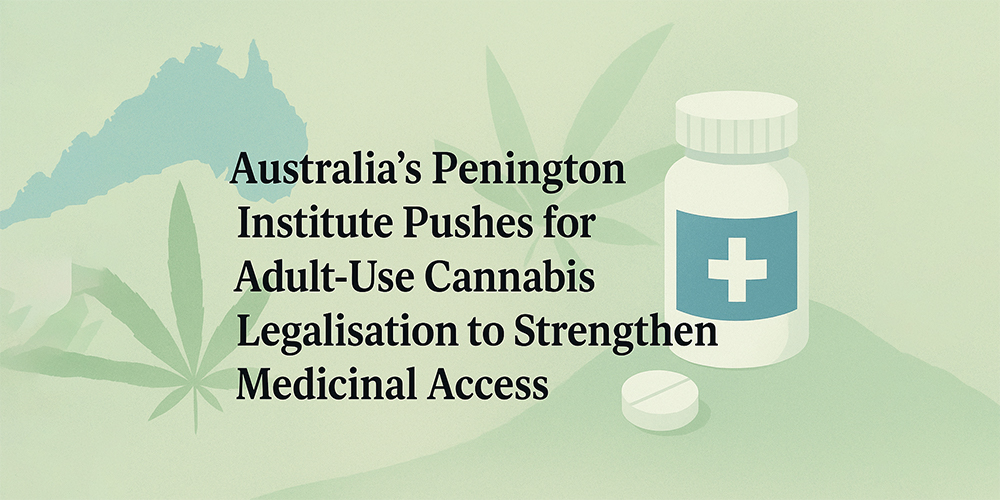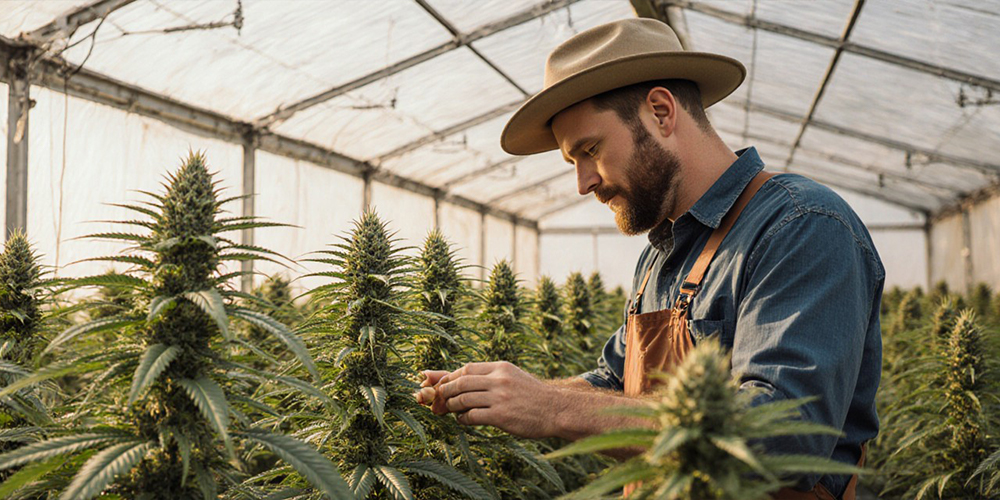
Home » Australia’s Penington Institute Pushes for Adult-Use Cannabis Legalisation to Strengthen Medicinal Access
Australia’s Penington Institute Pushes for Adult-Use Cannabis Legalisation to Strengthen Medicinal Access
Australia’s cannabis reform debate took a major step forward this week as the Penington Institute, a leading harm-reduction think tank, formally urged the legalisation of adult-use cannabis. Their message, delivered at the Medicinal Cannabis Industry Australia (MCIA) Conference, is clear: separating adult-use and medicinal cannabis markets is the only way to protect patients, streamline healthcare, and undercut the illicit trade.

A Strategic Shift in Cannabis Policy
The Penington Institute has long advocated for evidence-based drug policy. At the MCIA conference, the organisation’s representatives argued that partial reform has reached its limits. While more than 1.3 million prescriptions for medicinal cannabis have now been issued in Australia, access remains uneven. General practitioners face increased scrutiny from the Therapeutic Goods Administration (TGA), and a recent review of telehealth prescribing has stirred uncertainty for both doctors and patients.
By contrast, legalising adult-use cannabis would:
- Reduce pressure on the medical system by allowing recreational consumers to purchase cannabis outside the healthcare channel.
- Cut into the black market, which continues to thrive despite medicinal availability.
- Generate significant tax revenue that could be redirected to public health, education, and harm reduction.
Why This Matters Now
The timing of the Penington Institute’s push is no coincidence. The TGA’s crackdown on telehealth cannabis prescribing has created tension between regulators, prescribers, and patients. Some clinics have already closed, while others are adjusting business models, leaving patients in limbo. Without structural reform, Australia risks creating two bottlenecks: one in medicinal access and another in illicit supply.
Public opinion is also shifting. Polling consistently shows majority support (55–60%) for adult-use legalisation. As more countries, including Germany and parts of the U.S., embrace regulated recreational markets, Australia’s policy stance risks appearing outdated.

Economic and Social Implications
The potential benefits of an adult-use cannabis framework extend well beyond health policy:
- Economic Growth: Analysts estimate that a regulated market could generate AU$10 billion over a decade through taxation, licensing, and ancillary industries.
- Job Creation: From cultivation to retail, legalisation could create thousands of jobs across agriculture, health, retail, and logistics.
- Public Health Reinforcement: With regulation, governments could invest in education, addiction services, and community programs—funded directly by cannabis revenue.
The Penington Institute stressed that Australia should learn from global models: avoid over-commercialisation, ensure strong consumer protections, and prioritise harm reduction over profit maximisation.
Looking Ahead
The institute’s call could become a turning point. With the Victorian Liberal Party also set to debate a retail cannabis framework at its September State Council meeting, reform discussions are spreading across the political spectrum. If momentum continues, Australia may soon find itself at a crossroads: either cling to partial reform or embrace a full regulatory model that balances patient needs, public health, and economic opportunity.

